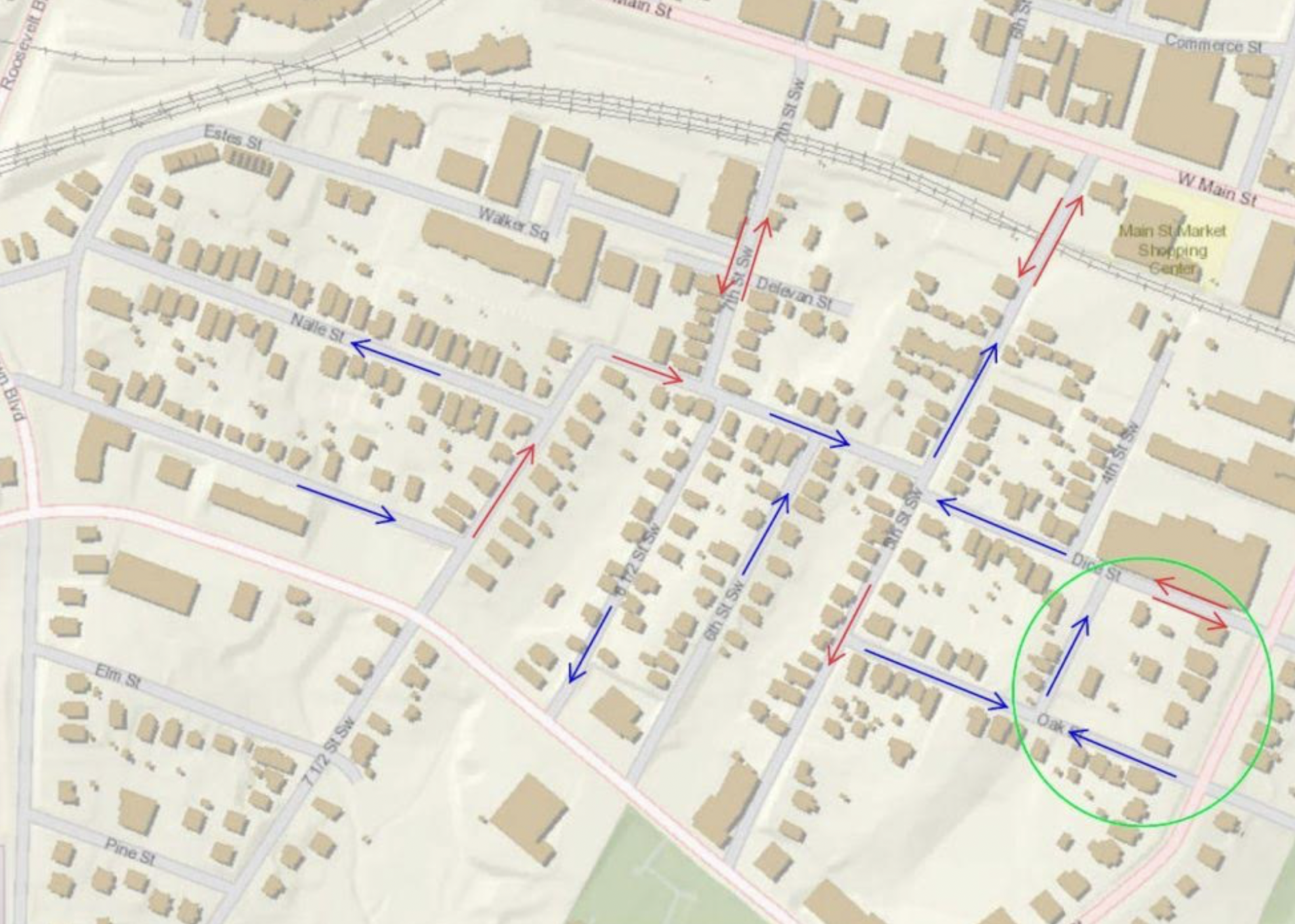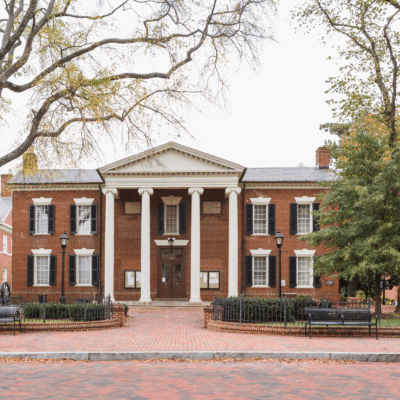“What’s been the hardest part of this job?” is, to outgoing Charlottesville City Manager Dr. Tarron Richardson, “a loaded question.”
The city’s top executive tendered his resignation on September 11, and will finish his time at City Hall on September 30, after 16 months at the helm. (For reference, the three city managers before Richardson stayed in the role for an average of 16 years.) City Attorney John Blair will take over as interim.
On his way out, Richardson says he was hampered by city officials who didn’t respect where their authority ended and his began, and that the media portrayed him unfairly.
“The primary job of a city manager is to make sure the budget is done correctly,” Richardson says.
“My role as city manager, in this form of government, I run the day-to-day operations, but City Council puts the policy in place. You never heard me, in a City Council meeting, try to influence a policy one way or another,” he says.
It’s true that Richardson rarely spoke up at council meetings—he spent most of his time on the dais expressionless, silently watching city business unfold around him.
He attributes this reserved public demeanor to a desire, as a new member of the community, to listen first and act second. But he also concedes that communicating his budget philosophy—“having people see that we look at the budget from a holistic standpoint and not just one department”—was the biggest challenge during his tenure.
“It’s never a good topic of discussion when you’re talking about the budget,” says the man who spent the last 16 months crafting the city budget.
Richardson rejects a suggestion that he had a bad relationship with City Council.
“I worked well with Wes Bellamy, Kathy Galvin, Mike Signer. I worked well with Sena Magill, I worked well with Lloyd Snook, and I worked well with Michael Payne.”
If you’re keeping track, that list includes every city councilor Richardson has overlapped with except Heather Hill and Mayor Nikuyah Walker.
Friction welled up between Richardson and those council members because “a lot of people were expecting me to come in and say yes to everything, rubber stamp it,” Richardson says. “But I’ve been doing this for a long time…So when you’re someone who says no to things that have been traditionally said yes to, you have issues.”
Hill declined to comment for this story, and Walker did not respond to a request for comment.
At Monday’s City Council meeting, Richardson’s last as city manager, Walker addressed his previous suggestions that she had micromanaged him. “The topics that I might have dug a little deeper with you are related to procuring supplies for the pandemic,” the mayor said, “making sure people had utilities during the pandemic, making sure we keep people employed during the pandemic.”
“In terms of micromanaging, if that means I strongly suggested that we take care of people in this community, then yes I did push a little harder,” she continued.
Two other notable city employees clashed with Richardson in the last year. Deputy City Manager Mike Murphy resigned suddenly last October, and penned a mysterious memo alleging mismanagement that has yet to see the light of day, according to reporting from The Daily Progress.
After a dispute over the timeline for the acquisition of new firefighters, Andrew Baxter, who had served as the city’s fire chief for four years, resigned in June. Baxter wrote in an email to a colleague that Richardson was a “transactional, unfocused, disengaged, dismissive bully,” and that his resignation was a direct result of Richardson’s management style.
That Baxter email was publicized by The Daily Progress in June, in an article co-authored by the Progress’ City Hall reporter Nolan Stout. Stout has repeatedly pulled back the curtain at City Hall by publishing employees’ verbatim email transcripts, obtained through the Freedom of Information Act.
Richardson has some choice words for Stout: “He doesn’t report the entire story. He reports bits and pieces of it. And for the most part it always portrayed me in a negative light, no matter what I did. All the positive things I’ve done have never been reported.”
When asked why he thinks that is, Richardson implies that his race has played a factor.
“If you look at history of The Daily Progress, has it always shown people of color in a positive light?” Richardson asks.
The Progress drew criticism for a 2017 piece about then-council candidate Walker, though the reporter who wrote the story left the paper in 2018.
Daily Progress Managing Editor Aaron Richardson says: “I stand behind Nolan’s coverage of and reporting on the city.”
The media made his job “very hard,” Richardson says. “What was said impacted me from a community standpoint.”
At his final appearance before the community at Monday’s council meeting, Richardson did not address any community matters but did take one last opportunity to reaffirm that he felt the Progress’ coverage had been unfair, specifically regarding the dispute between himself and the fire fighters.
Looking back, Richardson says he feels he did make positive changes during his time, listing a handful of bureaucratic reforms:
“What really went well was the reorganization of the various departments. Streamlining processes. And this was primarily to get departments that were similar within one portfolio,” he says. “We got our triple-A bond rating reaffirmed. We didn’t increase the tax rate…We had a lot of good hires. CAT, human resources, we just hired a new public works director. Overall we’ve been moving in the right direction.”
Richardson also points to his work in public housing communities as a successful element of his tenure.
And he does leave with some admirers in town. “You were out there feeding people when no other members of council were out there,” said local activist Tanesha Hudson to Richardson at Monday’s council meeting.
The resignation announcement didn’t come as a total surprise: City Council held an 11-hour closed session in June to discuss Richardson’s job performance, a meeting long enough to suggest that council members weren’t just heaping praise on their chief executive.
Richardson will walk off with a lump-sum payment equivalent to a year’s salary—$205,000. Hefty severance packages are not unheard of in the city. When Murphy resigned in December 2019, he took home almost a full year’s worth of his $158,000 salary.
Richardson says there wasn’t a specific incident that drove him out, nor a single moment when he knew he was finished.
“I ended up resigning for the simple fact that I was working a lot of hours. Day in and day out. And it just became a little too much for me… it just got to the point where I said okay, I’ve done my best, I’ve made a significant number of changes, and it’s time for me to move on.”
Asked if he has any hobbies that have been put on the back burner while he’s been working, Richardson says, “No, not actually. One thing I haven’t had a chance to do here is get a rest.”
Does Richardson have any advice for someone considering stepping in to this job? He takes a long pause before answering. “I would say really understand what you’re getting into,” he says.
Updated 9/24: NBC29 first published a selection of emails between Baxter and Richardson in February. The email quoted in this story was first published by the Progress in June.




